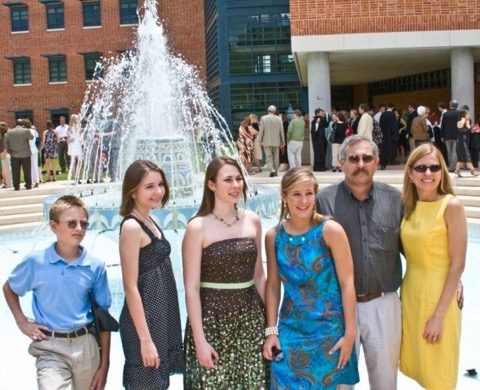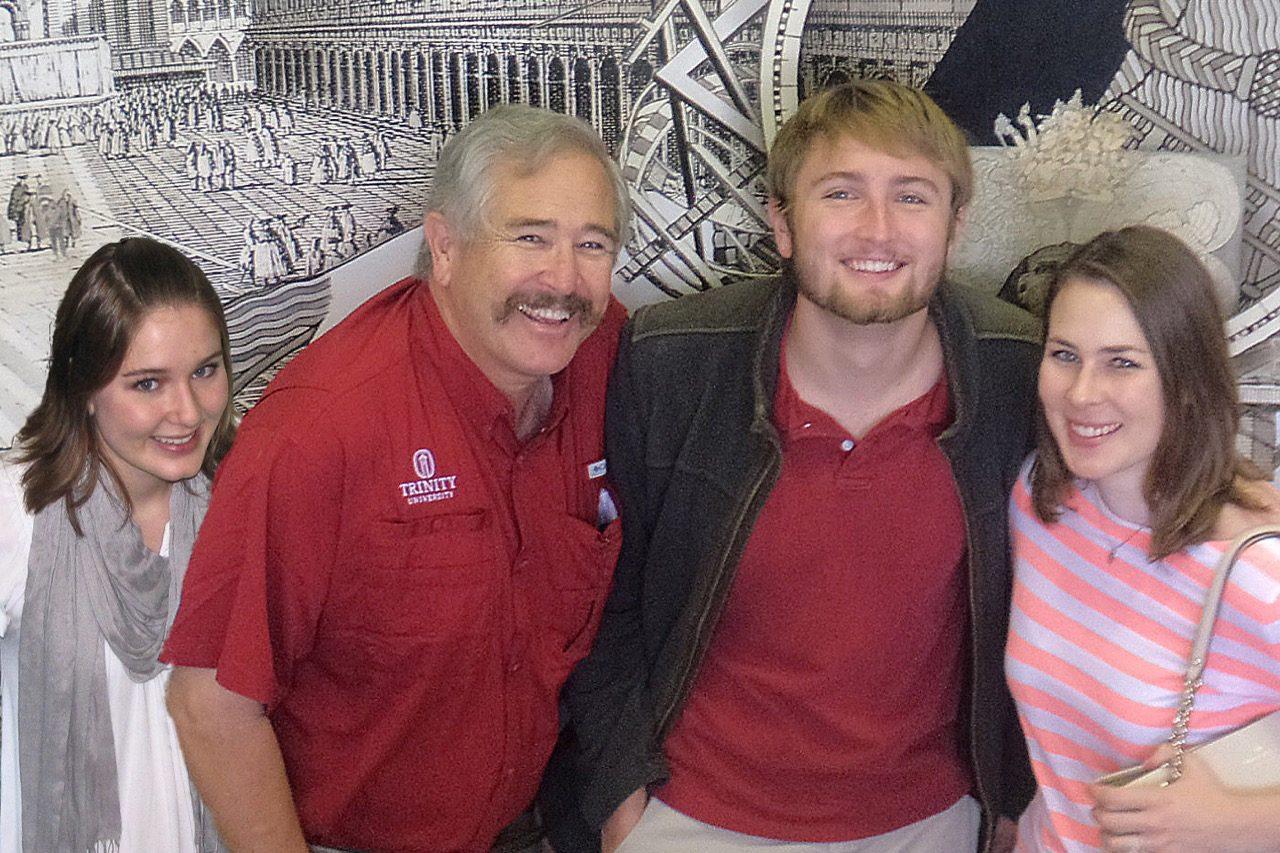Photo provided by Nathan Richter
Nathan Richter, senior engineering major, comes from a family where most members work in STEM fields, specifically engineering. Involvement in the Trinity community is also a family tradition: two of Richter’s three sisters, his uncle and one of his cousins graduated from Trinity. Another one of his cousins teaches in the Department of Chemistry.
MARIA ZAHARATOS: So can you tell me a bit about your family? How many of them did engineering at Trinity and what did they pursue?
NATHAN RICHTER: In the immediate family, there’s three of us who have gone to Trinity, me and my two sisters. The oldest, Amanda, attended Trinity and graduated in 2008, and the second oldest, Veronica, received her degree back in 2012. They both got engineering science degrees and chose to specialize in mechanical engineering, taking electives that were more suited towards the mechanical side … Amanda started working at the Southwest Research Institute, and Veronica started working at Schlumberger. Besides going to Trinity, my dad is also an engineer [who went to Texas A&M University], and both of my two sisters also married engineers. So out of the immediate family, only two are not engineers, my other sister and my mom.
MZ: Outside of your immediate family, did you mention that you have other relatives who went to Trinity?
NR: My uncle came here to Trinity much earlier than the rest of us. He was in computer science, and then his daughter, she didn’t go to Trinity, but she’s currently at Trinity as a [visiting professor]. She’s in the Chemistry department, Dr. Kryalyssa Hauger-Sanchez. Trinity is such a small place and chemistry and engineering are in the same building, so we see each other now and then and say hi. Sometimes, I’ll walk into her office during office hours, and we’ll just talk and see how things are going … So it’s nice having those connections. I also get to see them at the Trinity alumni events and reminisce. Also, one of my other cousins went to Trinity as well, graduating [with a degree in computer science] a couple of years ago.
MZ: Why did your sisters choose Trinity?
NR: From my understanding, Amanda attended Trinity because she liked the small classes, and she liked the idea of being close to her professors and that one-on-one time that’s so valuable in a small university. And then Veronica, who came here four years after Amanda, she saw how well her sister did and basically saw how good of an experience Trinity was, so she decided to go there as well.

MZ: How did you make your choice?
NR: I kind of did the same thing. I had already met a few of the professors here in the engineering department, and I had known that my sisters had a good experience at Trinity … And it actually came down to here and Rice University, and I actually ended up coming here because Trinity was very generous in funding, and that’s really what sold on it. I really liked the smallness of it, I wanted it to be in-depth, and I really liked the engineering design sequence; it gives hands-on experience.
MZ: Because so many people in your family followed that career path, did you ever feel any pressure growing up to become an engineer?
NR: No, there wasn’t really any sort of pressure I can recall. To be honest, I went into it because it’s just something I’m good at. I mean, what else would I be doing? … My parents were very lax about the whole thing … I think part of it, [for my sisters and I], was helped by the fact that my father was an engineer, so we could kind of see what that looked like. That definitely helped, but it was never a forceful thing.
MZ: Does the high number of engineers make family dinners interesting? How does it affect your family dynamic?
NR: If we starting talking about what their jobs are like, it makes things interesting, but we talk about other stuff. They have a lot of advice they can give me, which is nice. The thing is we’re also in different fields, so we don’t really have too much [exchanging of tips]. Both my sisters, they went into the mechanical aspect [of engineering], but I’m going more towards electrical. We have some differences. The only thing in our family is that we’re all very competitive, so that — more than anything else — makes it interesting.






